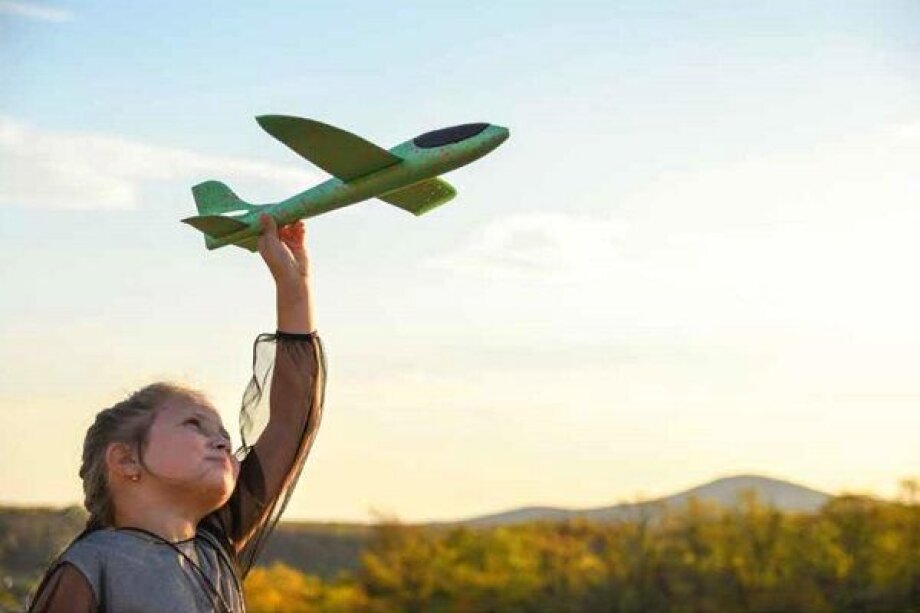GOING GREEN IS TAKING OFF
Logistics can be climate-friendly if we all act responsibly.

Logistics can be climate-friendly if we all act responsibly.

Earth is an extraordinary celestial body, continuously striving for balance. However, for decades its natural harmony has been disrupted by human activity. The daily choices we make affect not only our health, safety, and finances but also our planet and its existence for future generations. Humans are completely dependent on nature for their survival and well-being, so as a society we should do better. This applies to the private sector, the public sector, and each individual.
CAN LOGISTICS BE CLIMATE-FRIENDLY?
The enormous amount of goods transported every day does not remain without impact on the environment. The essence of the so-called green logistics is to optimize all logistics processes so that they have as little impact as possible on the world around us. The logistics industry is responsible for around 7% of global CO2 emissions. The logistics sector is, therefore, an important generator of carbon dioxide emissions in particular, but without it, economic development is not possible. We live in a global village and logistics supports trade. This means that companies are obliged to take action and run innovative and sustainable businesses. As a global logistics service provider, Kuehne+Nagel is among the companies that have taken action to challenge the status quo and aim for a greener future. Believing in the power of small steps and that by acting together we can achieve more, the company has developed a range of solutions to help avoid, reduce and possibly offset the carbon footprint of transport.
SUSTAINABLE SUPPLY CHAIN — DOES IT APPLY TO YOUR BUSINESS?
Avoiding trade is impossible, so the use of transport is essential. Any supply chain in terms of emissions is positively affected by being as close as possible to the supplier. If the distance between destinations cannot be shortened, the question of re-modeling the supply chain arises, which is the best way to reduce emissions. As a logistics operator, Kuehne+Nagel supports and advises on how to make the supply chain more sustainable.
“At Kuehne+Nagel, we plan and consider whether the lead times our customers have in their supply chains allow them to switch to a less carbon-intensive mode of transport. You can use a solution that is more environmentally friendly, e.g. sea-air instead of air freight or rail. The transport time for these alternatives will be longer, but also lower in emissions. It is often possible to change the delivery model of customers by using other solutions and optimizing the emission and efficiency. Additionally, sustainable aviation fuel (SAF) already exists in air transport. By taking this step, companies signal to their customers that they are acting in a very conscious way,” says Magdalena Kraszewska, marketing and communication manager at the Polish branch of Kuehne+Nagel.
Air transport generates the highest level of greenhouse gas emissions of all available modes of transport, namely sea, road, rail, and air. Bringing aircraft emissions to zero is one of the most difficult challenges of the logistics industry. To reduce this impact, Kuehne+Nagel has signed agreements with leading carriers and SAF fuel producers to make greater use of this option. Synthetic SAF is considered a long-term solution for the industry as it can be produced without restrictions on availability. Its advantage is that it can be blended with currently used aviation fuel, which does not require the production of new, technologically different aircraft engines.
CARBON NEUTRALITY BY 2030
When we announced the Net Zero Carbon program in September 2019, we were the first global logistics provider to commit to achieving zero CO2 emissions by 2030, both directly and indirectly — regarding the activities of our suppliers, i.e. airlines, shipping lines and transport companies. In doing so, we take environmental responsibility while helping our customers achieve their own environmental goals.
The pillars of the Net Zero Carbon project are monitoring the carbon footprint, neutralization and compensation. In Poland alone, we have hundreds of customers who use the platform in their daily work to estimate and order maritime transport. The tool provides information on how much carbon dioxide is emitted, in addition to strictly transport-related information. Even if customers don't take emissions into account, they are aware of these values. They can monitor these values and verify them on individual routes.
A way to encourage sustainable actions is the initiative to sponsor carbon footprint offsets for all completed shipments in the groupage service by sea and rail. The offsetting uses car bon credits, through which the company invests in international environmental projects that, in addition to removing CO2 from the atmosphere, support green manufacturing, maintaining sustainable businesses, protecting forests and endangered animal species, and helping the local community.
bon credits, through which the company invests in international environmental projects that, in addition to removing CO2 from the atmosphere, support green manufacturing, maintaining sustainable businesses, protecting forests and endangered animal species, and helping the local community.
Being sustainable also pays off in economic terms. The optimization of logistics processes, the responsible use of natural resources and energy and responsible waste management are all part of the Net Zero Carbon program and have a real financial impact. So far we have reduced fuel consumption on numerous European routes thanks to ongoing analyses of the transports carried out and close cooperation with suppliers. Using tools supporting route optimization based on Big Data technology, predictive analytics, and the Internet of Things, we are reducing shipping costs and establishing long-term partnerships based on trust. All of these aspects come together and allow us to run efficient, effective and sustainable logistics.
Magdalena Kraszewska
Marketing & communication manager at Kuehne+Nagel Sp. z o.o.